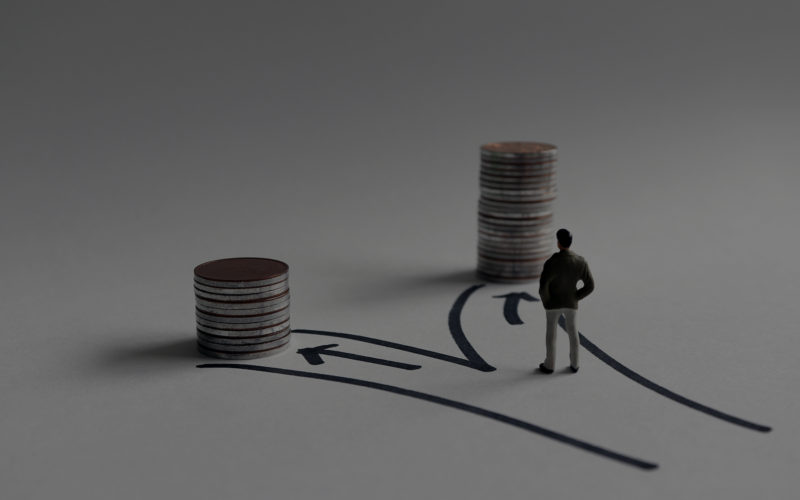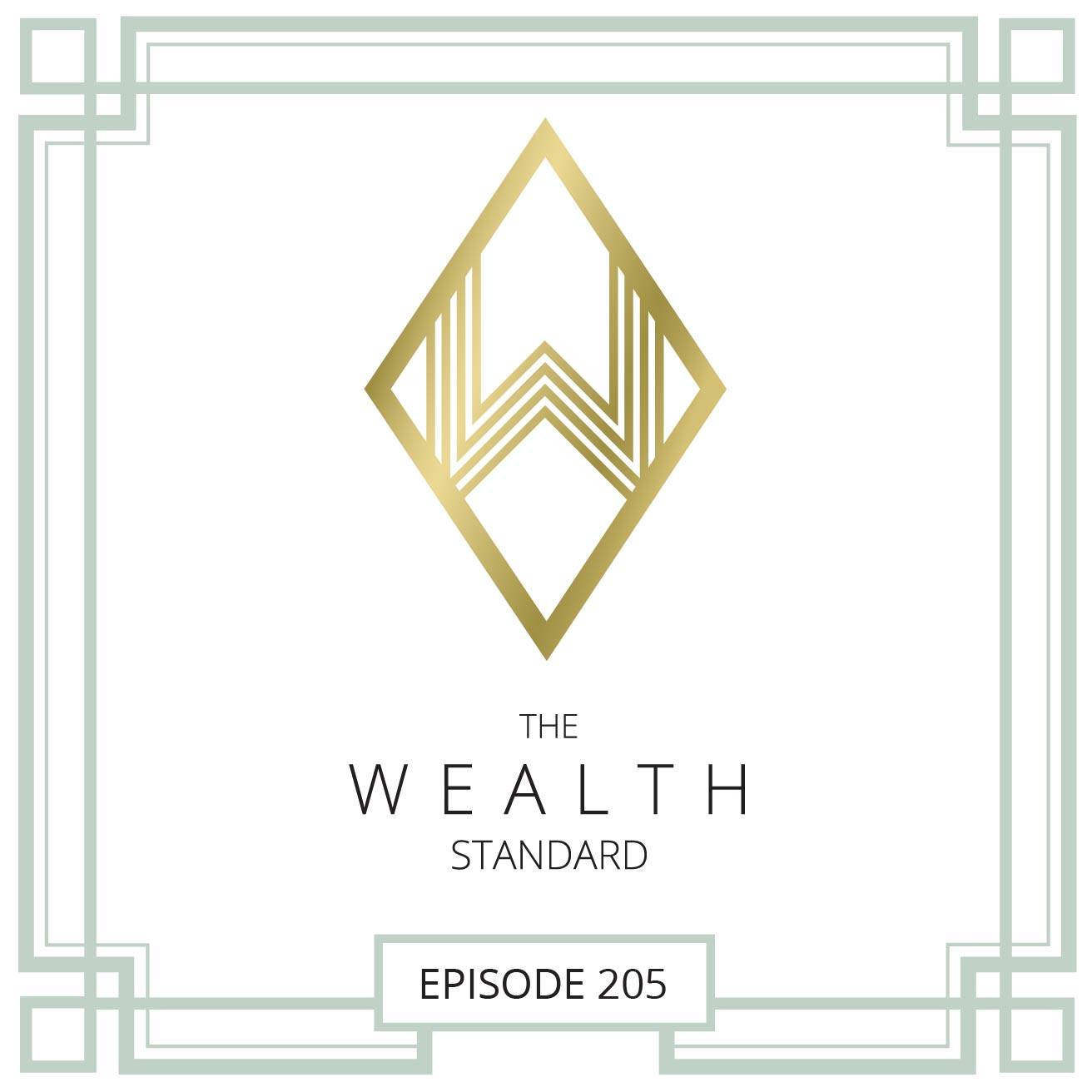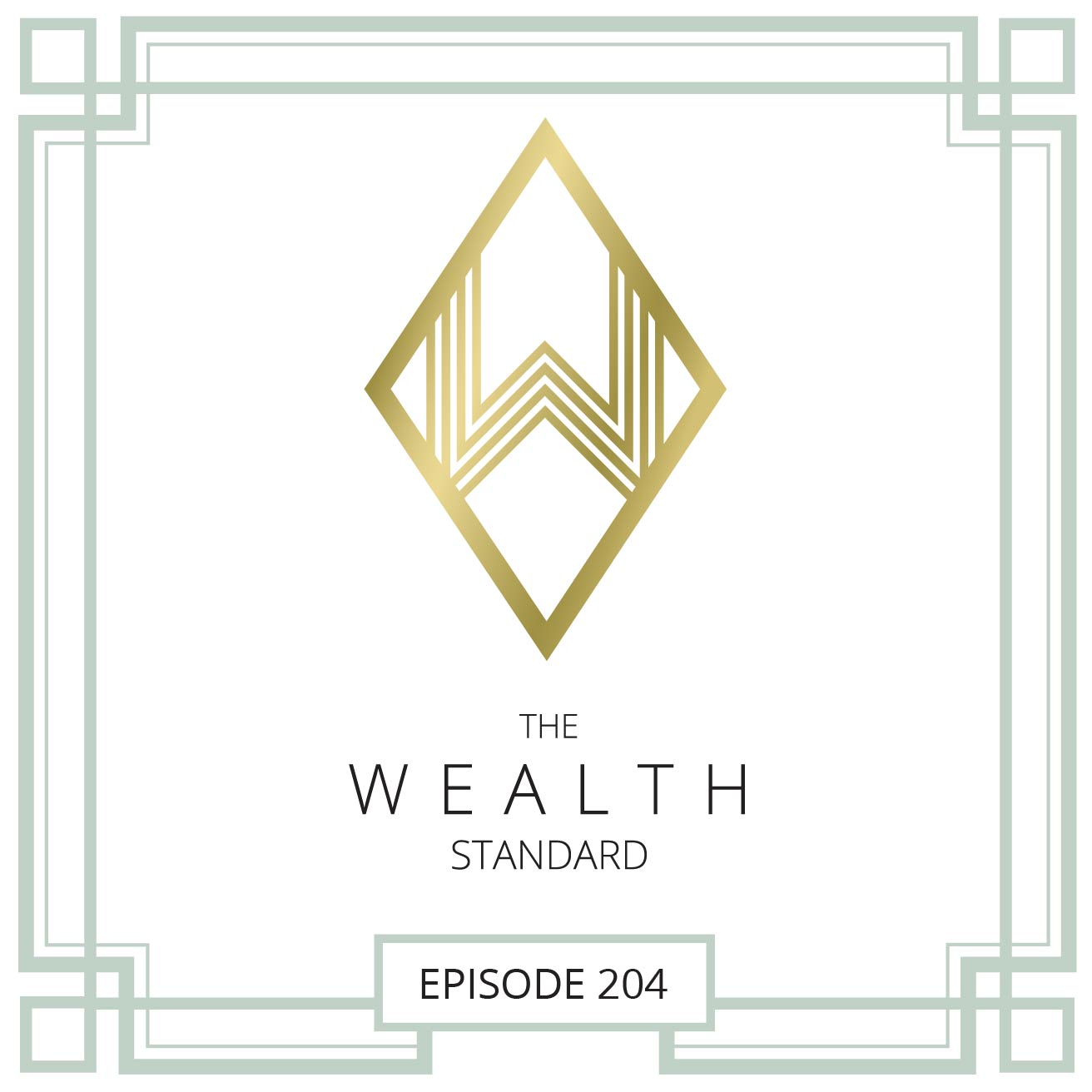The Wealth Mindset: The Difference Between Being Wealthy And Being Rich
Podcast: Play in new window | Download
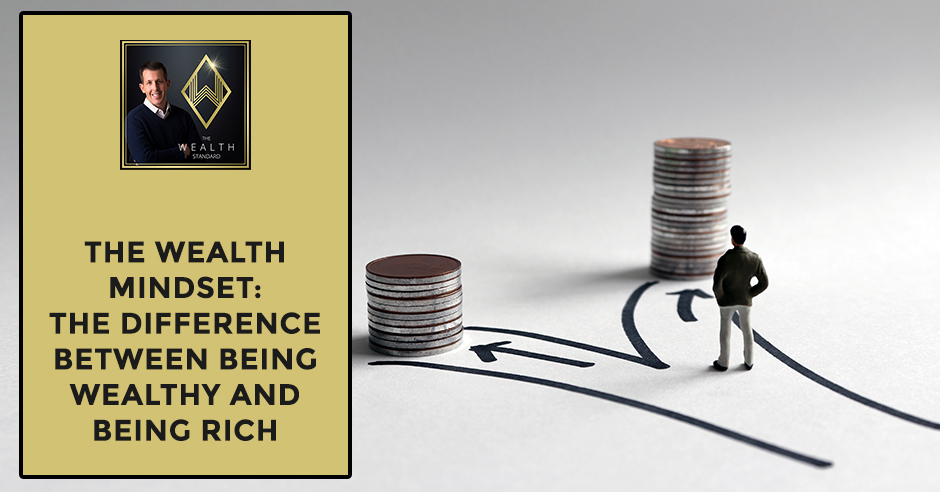
Mindset is what differentiates being wealthy from being rich and mindset is not a buzzword; it is something concrete, something you can take action upon. We are so used to thinking that success is dependent on strategy and tactics. We want the shortcuts. We want a step-by-step formula that we can follow to the letter. But all the brilliant strategies and tactics in the world will not give you what you want if you are not in the right state to experience a wealthy life. Ultimately, success is a function of you – of how you perceive, optimize and utilize what you have at this very moment. Listen to Patrick Donohoe as he explains why so many of our beliefs around wealth and success are turned on their heads and how we can put ourselves in the right state to build efficiency around what we have at this moment.
—
Watch the episode here:
Listen to the podcast here:
The Wealth Mindset: The Difference Between Being Wealthy And Being Rich
It’s been fun for me to talk about what’s on my mind, what I’m experiencing, what I am perceiving in the lives of clients and the business, and my general observations about the environment that we’re in. I hope you have found value in it. I’m going to wrap up a lot of those thoughts in this episode. I had the opportunity to attend Tony Robbins’ Virtual 360 Business Mastery. It’s an event I’ve attended about half a dozen times. It’s the first time in a virtual format. It was good and I want to frame the last couple of episodes with what Tony incessantly talks about, which is state, story, and strategy.
First, I hope you are doing well. I hope you are seeing the environment that we’re in and you’re finding opportunities. You’re finding things to be grateful for. You’re essentially putting yourself in the right mindset and state to capitalize on opportunities because it’s easy to get distracted. It’s easy to be frustrated. It’s easy to look at the environment and use it as a scapegoat for falling short of what you are trying to achieve, your goals, what you wanted for 2020, your business, your profession, and etc. As much as I look at those frustrations out there and potentially, they are more extreme now than before, in the end, it’s those things that we achieve and accomplish that are most meaningful to us. Right now is an opportunity to dig deep, understand what you want, what you want to achieve, and then find within you the strength to pursue and overcome what those challenges are, which stand in the way of getting what you want and achieving the life that you want.
I know that’s why you’re here. I have titled this episode Being Wealthy Versus Being Rich because there is a difference. Being wealthy is finding the opportunity to live life at a high level whether things changed or not, and regardless of the environment. It’s understanding that deep down in our day and age, there’s so much to be grateful for. There’s so much that we are able to experience. Oftentimes, we succumb to this disease of abundance where we forget and have this short-term mentality of how we live versus those that live 50, 60, 100 years ago. I believe that being able to find that opportunities are an interesting paradox. The more you’re in that mindset, the more likely you are.
The mindset of being content, satisfied and happy with where you’re at, with what your life is about, whether things changed or not, that mindset is most likely to get you what you believe is the environment that will make you happy. I’ll talk more about that paradox here. You’re probably saying throughout all of these episodes, what does this have to do with wealth? Why don’t you just tell me what to invest in? Why don’t you tell me where to put my money and give me a shortcut? In the end, wealth is a mindset. The tools, tactics and products and these are what I find interesting. There’s so much debate out there regarding the difference between this product and that product. This has higher fees and this has lower fees. You should invest in this thing and that thing.
In the end, I would say successful investing and becoming wealthy is a function of strategy, but I believe strategy comes after you understand the mindset of what I talked about. It’s interesting, there are many people, whether it’s a real estate project that has been successful, whether it’s single-family homes, multifamily, industrial or storage. There are many different aspects of real estate and people advocate for one or the other, pros and cons, but there have been people that are successful in that area. You also had people go bankrupt in certain areas.
I had the opportunity to go to Southern Utah with my family and some neighbors. It was a huge lake. It’s the Grand Canyon that was dammed up. It’s called Lake Powell. It’s such a unique place. There are hundreds of feet of water and you have these big rock walls. The water is 85 degrees and it’s hot. It’s in the hundreds every single day. When we were there, there were these beautiful boats and it was a new brand. I know some of the executive team. I did not necessarily experience them with high favor in regards to their business practices years before. Typically, during 2008, 2009 when I knew some of them. Yet they had these beautiful boats and they are all over. They’re the most expensive boats on the water, only to come to find out that there were some practices that they had where there are lawsuits, embezzlement charges and several other things associated with it.
Mindset comes first before strategy. Click To TweetWhat I’m trying to say is on the surface, some things look like they are successful. Some strategies and products and investments look like they’re going to bring you success, but there’s so much below the surface that if you’re uneducated, you ultimately learn the hard way. Whether it’s business, stock market, real estate, commodities, gold, Bitcoin, and other cryptocurrencies, those products are important, but they’re not the most important. In fact, they’re the least important. We had several episodes in years past about the Rich Dad B-I Triangle. They talked about successful business as well as investment in the business. The least important thing in that triangle is the actual product itself. Yet that’s where all the focus is.
The State Paradox
For me, I look at what creates success and ultimately success is a function of you. That’s where I want to frame the context now with the equation that I’ve talked about in the past or the formula I’ve talked about in the past, which is state, story and strategy. State is a function of your language, your focus and your physiology. State is ultimately what everybody wants, but they think that some environment is what’s going to give it to them. “If this happens or if it weren’t for COVID-19, I would be this. If it weren’t for the stock market, I’d be this. If it weren’t for the job market, I would be this.” There are all these contingencies that stand in the way of getting what people want in their minds because they believe that strategy and environment have to align in a certain way in order to experience what people want, which is all internal for me.
That’s the irony and that’s why there’s a paradox. I believe that understanding yourself and your mindset, and being mindful of yourself, self-concept and there are other terms for it. The idea is the experience of achievement is a feeling. There’s a focus there and there are also words used to describe it. This is the paradox, being in that state is most likely going to get you closer to what you want or think you want, as opposed to thinking that what you want is ultimately going to give you this specific state. It’s a paradox in a sense because I believe that if you’re content, happy and fulfilled based on what you have without anything being added to you, it is most likely going to attract the things that you want. They will get you and grow you to the next level.
Emotionality Vs. Rationality
Hopefully, that makes sense. I’ve spoken to these principles in a couple of previous episodes. That’s where I look at whether it’s the parody of The Opposite George and Seinfeld or all the different paradoxes that are out there in relation to some of the most important aspects of life. It applies to money as well. That’s the difference between wealth or being rich. What I would say is when it comes to what you want, being in that state is going to help you to have the right focus, the right language in order to perceive the right strategy for you to get what you want. What I would say is, as I’ve mentioned in one of the episodes, a big part of wealth is winning those battles between your emotions, reality, logic and rationality.
There are such heightened levels of emotion regarding what’s going on. Elections are part of it. There are also states that are doing specific things. You have the debacle with the post office. What I’m going to do is I’ll use the example with the post office. What people place as meaning under the post office is that it should exist, be funded and get money so that there’s fairness in the elections. If you remove the post office, you don’t allow that to happen, then there’s somehow not going to be fairness and justice. There’s a couple of different ways to approach that argument. There’s an emotional side of things that typically aligns with a political party and how you think things should be run in our country, but then you also have a rational side of things. I would say that wealth is understanding both sides, then being happy whether it goes one direction or another direction.
If it goes one way or the other way, then your happiness is now contingent on something that’s outside of your control. With the post office and don’t confuse the former Postmaster General with me because his name is Patrick Donahoe. It’s spelled with an A instead of an O. How I look at what the post office as far as service is concerned is the amount of money that the taxpayer has given to them over the last ten years, which is upwards of $100 billion. That’s $100 billion that needs to be given to them because they’re not creating the revenue as far as expenses are concerned. There’s a $100 billion shortfall if you measure out all the different bailouts they’ve been getting over the last ten years and specifically the $25 billion.

Wealth Mindset: Being in a state of fulfillment gets you closer to what you want, not the other way around.
If you look at the service of the mail and what it specifically does. This is where there’s a proper role of government when you break down the fundamentals of it, but the government has taken this role in solving everybody’s problems. If you look at it going to the rational side of why the specific government was created and what its role is versus what it is now, that’s the rational side of things. There is so much emotion and I might even get you blowing up on me, unsubscribing, and giving me hate mail. That again proves my point where there’s so much emotion involved with these discussions that people do not peel back the layers of reality and rationality. Ultimately, the post office provides us with service in an incredibly unprofitable way. $100 billion of opportunity costs where that money could have either not been taxed printed by the Federal Reserve.
The private sector has solved a lot of those problems anyway. We can deliver things to people’s houses. There are some technical things involved in that, but look at what we’ve been able to do as a human race, especially in the last few years with technology. There’s so much complexity in the different innovations that have occurred. The iPhone 12 is about to come out. There’s so much computing power and so much below the surface of that screen that is brilliant. Sometimes you step back and think about what went into that and how was that created, all the different supply chains, materials, the innovation and the design. It’s incredible. The complexity of that shows that human beings can get together and provide a product and service that is way more efficient than typically a government can provide because that’s not necessarily their role
The rational side of things is what’s being displayed now, but emotions are attached to this argument because it’s associated with elections. Elections go into the different parties and then it goes into who’s right and who’s wrong. It goes into all of these deeper levels of emotion. I’m not saying from an emotional standpoint that this party is right or this party is wrong. Going into a rational conversation, you have to understand where your emotions are and specifically as they relate to potentially being wrong. Maybe there’s another opinion that might be important to understand. Having those stifled or muted for a moment to understand the logical side of things or even another perspective. If you can win that war, that’s true wealth. The last thing is having a lot of money and having a miserable life.
I’m going to use another example. There are more people that are planning on leaving California because of the proposed income tax hike, which taxes the wealthy, the higher echelon of society there because quarantine has impacted the lives of many people. At the same time, if you think about the rational side of things, the buzzword is justice, social justice, economic justice and wealth inequality. I’m not going to get into the details here because these are highly emotional topics and I’m bringing them up because I want you to discern between the emotional side of things and the actual logical side of things in order to come to a conclusion. Hopefully, in most cases, you realize that most of the stuff you get emotionally stirred by, affected by and influenced by has little meaning to the quality of your life which was fascinating to think about. I won’t go down that tangent. As far as taxes are concerned, the understanding that people are affected by COVID-19.
As individuals or human beings, we seek comfort. It’s natural for us. It’s part of Maslow’s Hierarchy of Needs. We see seek safety. What’s interesting is when safety and comfort are given to somebody without any effort on their part, what it does is cancels out the experience of comfort. It also robs the individual of one of the primary things that separate us from the animal world or the animal kingdom, which is our ability to rationalize, problem solve, think through things and come up with solutions. When somebody achieves, especially an achievement that puts their economic wellbeing in jeopardy when somebody overcomes that. They find another job, they move to a different state, they get training and learn something new and are now more valuable and get a different job. The impact that has on the human soul and what a person is able to feel about themselves and the confidence that they have, that is what human beings are capable.
It’s essentially being robbed by providing stimulus, unemployment benefits and a Band-Aid to what’s going on. I know some people are down and out more so than others. At the same time, you stifle the experience of life that’s most meaningful when you rob people of being able to figure out their own problems and overcome their own challenges. This now goes into the proper role of the government. Is it the government’s job to tax more and then give to those that are impacted by this? I understand the arguments on both sides, but my point is to bring up this high emotional conversation. It helps you realize how much that impact the quality of your life, especially when it comes to the things that you can’t control and don’t have much relevance to your specific environment and your specific life.
There are ways to be more efficient with what you already have. That’s where all strategy should start. Click To TweetThat being the case, this goes to the state. You look at what you want from your life, where you’re at right now, and the gap between where you are and where you want to be. Inside of that gap is a state. There’s a story that comes from the different states that you’re in. Usually, the state is it’s the stock market’s fault or it’s my employer’s fault, or my colleague got a raise and I didn’t, and it’s not fair, or this happened or that happened. We always have excuses. We always have a story about why we’re not in the place that we want to be. That’s unfortunate but looking at a state shift, being able to change your state and there are three variables to state: different physiology, different focus and different language. When you start to use a different language, you start focusing on what you have, not what you don’t have. You’re able to think back on the times where you have achieved, overcome and succeeded. That then is going to be a different story and the way in which you perceive strategy, tactics and things to do.
I know all of you want shortcuts and want the things to do, want the strategies, want the tactics, but without state and story, those will rob you of the experience and most likely, it will not help you even if you did get them. I believe that most people with the wrong state and the wrong story will not be able to use strategy in an effective way to get them from point A to point B and overcome that gap. It’s natural for us to respond to the circumstances of life with excuses, “This happened, this person left me, this person cheated me, my employer this, my employer that, the government this, the government that, the president this, the president that.” When we started to take accountability for our life, that’s when our state can change and doors of opportunity open up to apply a strategy.
The Efficiency Formula
Now, I’m going to give you some strategy. I do tactics but I’m going to give you some simple ones as an example. Many of you had read the season I did on capitalism. If you remember Hernando de Soto, which I tried to get him on the show two dozen times. He’s old and was sick, but he wrote the book, The Mystery of Capital. It’s a fascinating read. I’d encourage all of you to read it. It’s written in a simple way where most people without an economic background can understand and benefit from. Capital comes from the word cattle. The reason why it comes from the word cattle, in and of itself a cow, he didn’t say it was where the value was. Capital is created as a byproduct of the cow. What that means is here’s the cow, now how do we optimize the different elements of a cow, the meat, the leather, the milk, it keeps going on and on, the different types of meat. My wife is from Mexico and they eat cow tongue there and intestines. There’s an optimal way to look at all of the different elements of a cow and essentially derive additional value more so than what’s experienced on the surface, which is just a cow.
It’s the same thing with petroleum. Petroleum was just oil. It was this nasty stuff in the ground that bubbled up and ruined crops for farmers. We’ve learned to make many different things as a derivative of that. That’s capital. What I’m trying to get to here is in your specific life, there are ways to be more efficient with what you have. That’s where I would start. That’s where all strategies should start. It’s not adding, but being more efficient with what you already have and deriving opportunities from what’s going on. Let me give you some examples. Interest rates have been extremely low and I was able to refinance all my rental properties. I have a small mortgage on my home but other than that, no personal debt. I carry mortgages on all my investment properties. I was able to increase cashflow by thousands of dollars by refinancing with very little money out of pocket. I was able to skip some payments as well.
It’s finding ways to be more efficient with what you already have. That’s a great example of doing that. If you have personal debt, refinancing personal debt and ultimately paying it off, student loan debt and car loan debt. It’s being more efficient with your cashflow. The second thing for me is being forced based on what has happened with shutdown and quarantine. You’re not spending as much because you’re forced to not spend in a sense. Many of you may have an Amazon addiction, but it’s looking at what comes in and what goes out. From a spending standpoint, I know that there are record levels of people paying off their personal debt because of this increase in discretionary income. That’s another thing, it is to pay attention to what’s coming in and what’s going out. I’ve referenced you need Budget, which is a software I use for my personal finances. Go over to the website, TheWealthStandard.com. There’s a link there. You’ll get a little discount for signing up, but you need Budget.com.
Now that you have maybe some handle on where your cashflow is and an efficient spending plan, you’re going to find equity. You’re going to find the difference between what you make and what you spend. That’s cashflow. One of the things, and this is a very simple way of doing it, it’s a psychological shift, which is setting up a separate account. I call mine the Donohoe Family Fund and it has rules associated with it. Out of that fund, no money is spent on consumption. It’s all investment or putting money into a financial product. This fund is completely separate from your checking account and operational account. Sometimes people have found it useful to have those accounts at different institutions. I have mine at the same institution but what it is, is to separates. It creates rules around it and stick to those rules.
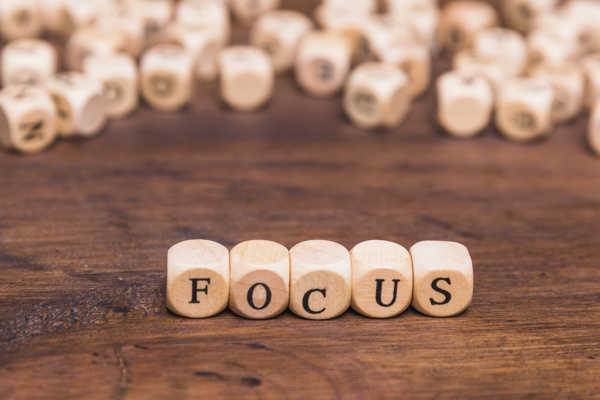
Wealth Mindset: Focus on what you have, not on what you don’t have.
Looking at that, when money comes into this specific account, I usually advocate six months of liquidity, whether it’s in a specific liquid guaranteed safe environment product, not a bank account but more of a product. We use insurance with my company, Paradigm Life, but even inside of this fund, it’s having at least six months of liquidity. That’s even before paying off personal debts. I would say having that liquidity, those reserves, there’s something psychological that happens when you know that you have money in the bank that can last you six months. There’s something that happens that triggers something and creates a level of safety and certainty that allows you to operate a little bit differently. You then essentially go through what to invest in and what type of assets.
There are two things I’m going to bring up. I’ve been working on ways in which we can do some online technology applications that are more self-assessment in nature. I’d love your help. One of them is specific to what I’m talking about. It’s called the Financial Independence Calculator. It’s in an Excel spreadsheet. I would love for you to access that. I’m going to ask for your email address because I want to request some feedback. I’m developing some software and getting some feedback from you will help with the whole user experience that people have. If you would download that, check it out. What it does is it gives you a Financial Independence Day. It is a function of your saving, your investment cashflow, as well as your ideal scenario in which you produce and work. I hope you like that one.
That’s a great first investment but there’s a second part, a second calculator called The Hierarchy of Wealth. This is something I talked extensively about in my book, Heads I Win. Tails You Lose. If you don’t have a copy of that, that’s also available for free, both the PDF and the audiobook in TheWealthStandard.com. You can go to Amazon and buy the book or download an Audible book. There’s Kindle as well, hardcover, softcover, but this is a way in which you can get access to it for free. You can learn about The Hierarchy of Wealth there. There’s a calculator that they developed. It’s in an Excel spreadsheet. What it does is it helps you to identify all the different assets that you have and it ranks them in a specific hierarchy.
The hierarchy that I came up with is a function of risk and control and you will see that in there. That will help prioritize what I call your opportunity fund. Once you have money that goes above and beyond your liquidity, your six months or some of you may want 12 months or 18 months, depending on your comfort level and what gives you that feeling, that psychology of certainty. When there’s money above and beyond that, it becomes your opportunity fund. An opportunity fund is to make an investment. Making an investment, you want to know, “Where are the opportunities to invest?” What I would say is to understand where your other investments are first. That’s where The Hierarchy of Wealth comes from.
The Hierarchy of Wealth will help categorize all the assets that you have and then give you some insight into potentially where are some types of investments to think about first. For me, one thing I am adamant about regardless of where my investments are and how my assets are allocated. As I mentioned, Business Mastery by Tony Robbins. I’m huge about personal development and investing in myself to become a better leader and to understand business strategy, leadership strategy, operational strategy and financial strategy within the business. I believe that’s where the most control that you have and where you can ultimately find the best returns. I believe your business and your profession is what creates liquidity. That liquidity is then invested, which creates cashflow and subsequently degree of wealth, and more options when it comes to money.
This is a shorter episode but I’m glad that you are on. Please go to TheWealthStandard.com to access those two free self-assessment spreadsheets. I’d love to hear your feedback. That’s it for now. There are going to be some cool guests. One specifically is going to talk about education and what’s going on with our kids and options you may not have thought about before. We’re also going to probably get into some other libertarian type of topics. It’s going to get juicy. Thank you for your support. If you like what you read, head over to iTunes, Spotify and give the show a good rating. That always helps to get the word out. Share it with friends and feel free to share all these apps and other resources with your friends as well. I will talk to you next time.
Important Links:
- 360 Business Mastery
- The Mystery of Capital
- Budget.com
- Paradigm Life
- Heads I Win. Tails You Lose
- Amazon – Heads I Win. Tails You Lose
- Audible – Heads I Win. Tails You Lose
- Kindle – Heads I Win. Tails You Lose
- iTunes – The Wealth Standard Podcast
- Spotify – The Wealth Standard Podcast
Love the show? Subscribe, rate, review, and share!

